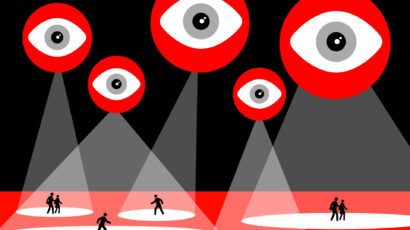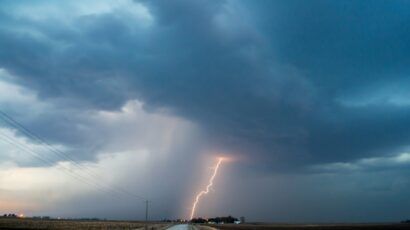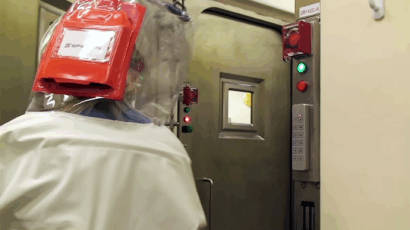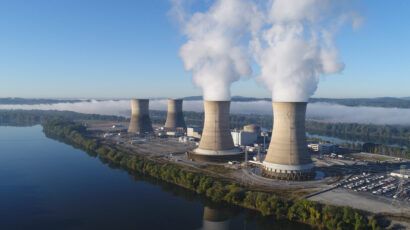An introductory interview with Alex Bell, the new president and CEO of the Bulletin
By John Mecklin | February 3, 2025
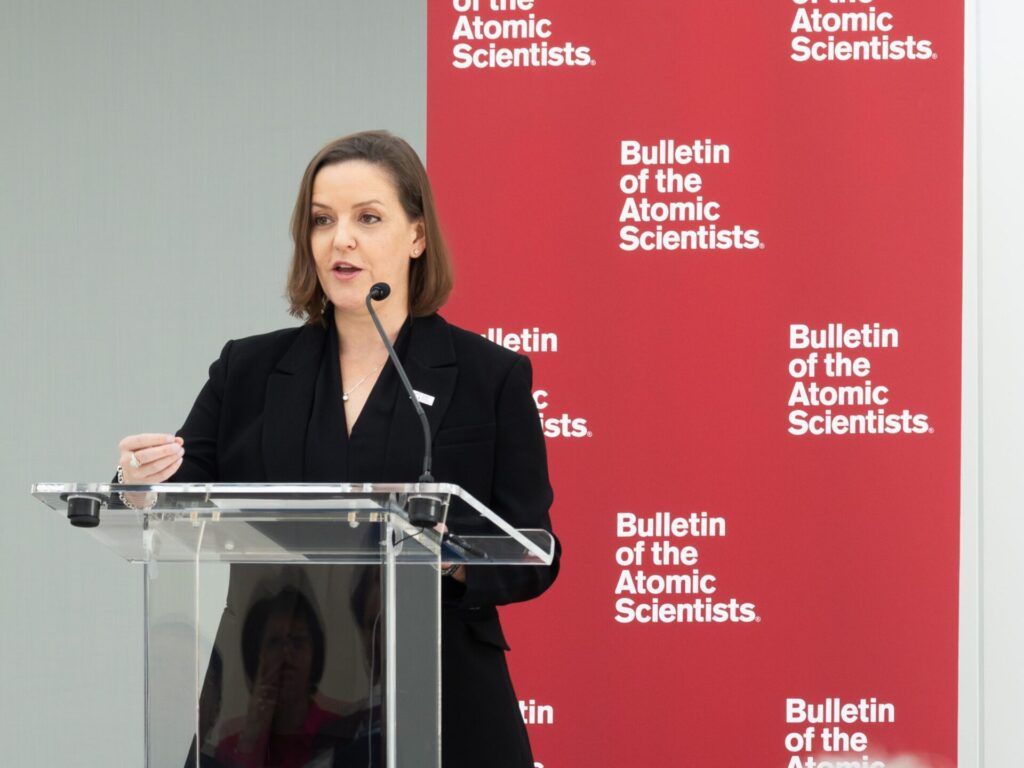 Alexandra Bell
Alexandra Bell
Alexandra Bell—a nuclear policy expert with long experience in government and nonprofit positions—officially became the Bulletin’s president and CEO today, succeeding Rachel Bronson, who had served in that role for a decade.
Bell’s experience in the State Department spans two presidential administrations. Immediately before joining the Bulletin, Bell served as Deputy Assistant Secretary for Nuclear Affairs in the Bureau of Arms Control, Deterrence, and Stability (ADS) at the US State Department, where she managed the Offices of Strategic Stability and Deterrence and Multilateral and Nuclear Affairs. In another State Department stint that began in 2010, she served as a Senior Advisor in the Office of the Under Secretary of State for Arms Control and International Security and as an Advisor in the predecessor organization to ADS, the Bureau of Arms Control, Verification and Compliance.
Bell’s nonprofit and advocacy experience is similarly wide-ranging. From 2017 to 2021, she was the senior policy director at the Center for Arms Control and Non-Proliferation and the Council for a Livable World. And before joining the State Department, she worked on nuclear policy issues at the Ploughshares Fund and the Center for American Progress.
I sat down with Bell last week to talk about her plans for the Bulletin and a host of related subjects that ranged from the possibility that President Trump could achieve progress in arms control and nonproliferation to the increasing tendency of existential risks to intersect with one another. What follows is a lightly edited version of our conversation.
John Mecklin: You have a long history in the nuclear weapons field, both in government and nonprofit organizations. Many people in and around the Bulletin know you; a lot of them know you better than I do. But we have roughly 600,000 readers a month, and a lot of them won’t know you. So why don’t you just talk about how you got into this happy field of nuclear risk, and what you were doing right before you came to the Bulletin.
Alex Bell: Earlier, you phrased the question in Hollywood terms: What was my origin story? And I was thinking, sort of hoping there was something amazing when I was young, like there was a radioactive spider that bit me: Yeah, that’s how it happened. [laughter].
But really, I was passionate about issues relating to the security condition of the globe and the environment at a really young age. I actually wrote President George H.W. Bush when I was about eight years old to demand answers about the Exxon Valdez oil spill and to voice my concern about nuclear threats. And I got a form letter response from the White House about two months later that said, “Thanks for your letter, and keep reading books.” And you know, all the rage in in my little eight-year-old body said, “This is unacceptable. I did not get answers to my questions.”
So I’ve really been pushing for answers ever since. I went on to major in war studies as an undergrad and conflict and security in grad school. And I always really liked the intersection of science and security. While it’s not a typical path that an eight-year-old may be dreaming of, it really was a path that made sense for me.
At my most recent job at the Department of State, I was focused on strategic stability and deterrence, as well as multilateral and nuclear affairs. To some, it may have seemed incongruous that I was working on deterrence and disarmament at the same time, but I really think it made perfect sense; you have to be thinking about the threats and the potential solutions at the same time. And honestly, I really think those two communities should be talking more, not less. So while there, I was able to work on assuring US allies and partners about US commitment to their defense and security and to the security of the world writ large, while also really working to strengthen existing relationships and build new connections with countries around the world to collectively reduce nuclear risks. I often thought we have a lot of process disagreements, but generally we always share the same goal, and that’s to reduce the likelihood of catastrophe, to find solutions to these existential risks. And those process, tactical disagreements can be managed, if you just keep working the problem together.
Mecklin: That tension between those two camps [deterrence and disarmament] comes into what the Bulletin publishes quite frequently. But you must have had all sorts of job opportunities coming out of a fairly high level at the State Department. Why the Bulletin? What do you find compelling about coming here?
Bell: It has always, in my mind, appeared as this incredibly important and venerable institution. The idea—to carry on the legacy of an organization started by Einstein and Oppenheimer—is the dream of any nuclear nerd. But it’s really that very early in my career, it was clear to me that you can have the best ideas in the world, but if people don’t understand the underlying problem or the proposed solution, that idea isn’t going anywhere. Communications is a really undervalued part of this work. Many times, the messaging around a potential approach to managing these threats is the last component of a plan, rather than an integral part of it from the start. And I think it’s one of the reasons that good ideas can wither on the vine, because they weren’t fully explained, because people didn’t have access to all sides of the threat space and how we were coming at a potential solution.
So I’m thrilled to be a part of an organization that understands the importance of connecting scientists, policymakers, academics, and experts to a broader community, especially at this time when all these existential risks are becoming increasingly complex and intertwined. The Bulletin really has a critical role to play in getting facts and sound analysis into the public discourse.
Mecklin: Talking about complex situations, a new president is coming into office, and I understand that it’s kind of fraught for someone who just came out of the previous administration to talk about the new administration. So why don’t we try to head in a positive direction? Do you see things that President Trump might be able to do, given his general way of relating to the world, that would have a really positive impact on international relations, particularly in nuclear weapons policy?
Bell: Yes, absolutely. President Trump has the ability to make an extremely positive impact on international security, should he choose to do so. The diplomats, scientists, policy, experts, lawyers, and servicemen and -women throughout the government bring to bear all the skills necessary to reduce existential risks. They simply need the go ahead, and they need to be empowered along the way. On the nuclear policy front, the president has indicated at [the World Economic Forum meeting at] Davos an interest in pursuing arms control and nonproliferation efforts. I hope that remains the case, and that again, he empowers his team to go bring him some wins in terms of getting Russia back to the table, getting China to the table, and protecting and strengthening the nonproliferation regime, most importantly, the nuclear Non-Proliferation Treaty (NPT). There’s lots of work to do.
He’s got a great team of experts in the government that that are capable of delivering the kinds of risk-reduction measures he mentioned in Davos. I hope they get the chance.
Mecklin: As you know well, the Bulletin, from its beginnings, focused on nuclear weapons and nuclear risk, but the remit has expanded. We cover climate change, biosecurity, a bunch of disruptive technologies. In addition to nuclear policy, you’ve had experience in several of these other areas. And I just wanted to hear you talk about this different threat environment we face of late. How do you see us dealing with this variety of existential threats that intersect in various ways?
Bell: I have had the opportunity to work on issues related to emerging and disruptive technology, particularly in how they affect nuclear strategic stability. I was working a lot in the P5 context—the five recognized nuclear weapons states under the NPT—about the issue of human control in nuclear launch authority, and we made some progress. We have four out of the five on board with the concept of having clear human control over nuclear launch authority. That’s a small step on a much, much longer road. Unfortunately, it cannot be traveled without Russia. That is the one nuclear weapon state under the NPT that has not made that commitment. So there’s more work ahead.
But more broadly, what I’ve learned is you can’t just open a cyber office or, you know, have a paper about AI. What we’re living through is a change in the entire security environment. That means we have to have much more coordination across expertise groups, and we need to do it quickly. If there are people talking about the future of strategic stability, you need to have experts on emerging and disruptive technologies as part of that conversation, because there’s no way those things won’t be connected. We’re also going to have to manage these new technologies in a world rife with weaponized disinformation, and I really think that’s why outlets like the Bulletin are so important. Our mission—to put out accessible, nonpartisan, factual, solutions-oriented content—is all the more important as we deal with these new tools and technologies that are really evolving faster than our ability to understand them.
Mecklin: It is a sort of a daunting array to deal with sometimes, and you’re coming in to lead an organization that has to do that. Since the threat environment is changing, the Bulletin will need to change. You’re the new president and CEO, and people are going to want to know, well, what are your plans, Alex? I know from having talked to you a bit that you don’t want to list out a whole bunch of specifics right at the start. But can you give our readers and supporters a little bit of a sense of direction, where you’d like to take the Bulletin?
Bell: First off, the Bulletin has been doing an amazing job in fulfilling the mission that was laid out by Oppenheimer and Einstein all those years ago. And I’m really excited to be a part of continuing that tradition. I certainly want to help the Bulletin play its part in facilitating a robust dialog on how we manage and work to reduce existential threats, and that means bringing in even more perspectives. My approach to start will be to get the lay of the land as part of the team, rather than as a sometime contributor. I want to talk with staff, board members, and supporters and really build the next chapter together. And you’re right, we will have to adjust, as all civil society organizations and governments will have to adjust and be ready to adapt to meet the challenges that we’re seeing today. But that’s something that I want to do with the team, with the supporters of the Bulletin, and figure out how we can best meet this moment.
Mecklin: You’re going to be doing it from Washington, DC, which is kind of a switch for the Bulletin, which was founded in Chicago. The previous president and CEO lived in Chicago, and there’s a core of support there. Although we’re an international organization, I think readers and supporters will want to know: How does that work? You’re in DC; the University of Chicago has been home for the Bulletin. How are you looking at managing that?
Bell: As you mentioned, the Bulletin is an international organization. We’ve got people spread all over and take advantage of the tools that enable work from various locations. I plan to be in Chicago often, an amazing town and an amazing team there and people I want to maintain relationships with. There are also a lot of benefits to my presence and network in DC, and I want to work on trying to make sure the Bulletin’s excellent content is read by policy makers, both here in Washington and abroad. Also, with 10-plus years of experience as a diplomat, I am no stranger to planes. I’m really ready to go wherever I need to go to help the Bulletin advance and grow. And I am a champion suitcase packer.
Mecklin: I bet that’s true. There’s a situation that has to do with information generally—disinformation, misinformation, the whole information ecosphere. It’s been part of the Doomsday Clock statement for several years now, how hard it is for decisions about major global threats to be made amid this sea of conspiracy theories and disinformation. The Bulletin has been dedicated to figuring out ways to fight against that trend, but it’s an extremely complex, difficult situation. How do you see the Bulletin’s role in that realm? How can the Bulletin be as effective as possible in fighting for fact and against fantasy?
Bell: This is really critical. If we can’t agree on facts, we won’t be able to find solutions. And when it comes to these solutions, people can see different paths as more viable, but they have to be able to agree on the base, underlying problem, and the reality of that problem. I think the Bulletin can really help by continuing to produce clear content with accessible evidentiary support and continuing to put itself out as a not-for-profit, nonpartisan organization that has a commitment to a fair presentation of the threat landscape and how we manage that threat landscape. Recently, I noted an idea behind the Bulletin’s core mission: We are not prejudiced, except for in one instance, and that’s that we are 100 percent and completely against the extinction of the human race. That is the one prejudice we bring to bear. We are for solving existential threats, and we will present the facts, the analysis, and the potential solutions around achieving that goal.
Mecklin: Yes, survival has always been pretty important to me.
Bell: Yes. And I’ve had people throughout my life—family, friends from my hometown—who were almost surprised to find that nuclear issues could be so partisan, and there was so much disagreement about how to manage things. And that’s why I keep trying to come back to the idea that we can have process disagreements, but together, we have to be managing these threats. Together, we’ve got to find ways to produce common ground. And the Bulletin can really be a forum for that discussion, for that discourse, never in a place where we take our eyes off the end goal: the safety and security of this country, of this world, of this planet.
Mecklin: At this point, I’m going to ask you sort of a final question. Some people might think of it as a throwaway, but I don’t. People will be seeing your professional bio, they will know the from-the-outside Alex. What I’d like to ask is: What do you think is important for readers and supporters to know about you that they wouldn’t find Googling you and looking at your professional bio? Yes, it’s the standard interview question: What do you do in your private life, Alex?
Bell: Fortunately, they would already know from my bio that I’m a huge Tar Heel fan, so that would be easy to access. But I am a founding member of the Atomic Dumpling Politburo, which is a group of nuclear experts committed to the arbitration of what is and isn’t a dumpling. We also like to eat dumplings of all shapes and sizes.
What it really formed from was a conference where we were talking about very difficult issues and how to manage nuclear threats, and all these experts sitting around the table took a break from the very dark and difficult things that we have to talk about and spent almost the entire length of dinner in this very thorough and hotly contested debate about dumplings. And you know, we’ve sort of stuck together. And there are a lot of pictures exchanged back and forth of dumplings in exotic locations.
This is hard work, this is difficult work, this work can really weigh on you. And I sometimes get this question of, how do you work on something that that seems so depressing, that seems so hopeless? And my response is always: It’s never hopeless. We are fully capable of finding solutions to the problems that we ourselves collectively created. But also, you have to give yourself a chance to take a breath, laugh, get into silly arguments with your friends and colleagues and remember that the world, inherently, is still good and full of excellent dumplings.
Mecklin: And this brings up an important and really final question: Is there a dumpling hierarchy? Is there a best dumpling, or a top three? Or is that disputed?
Bell: I think it would be disputed. The most controversial issues tend to be around sweet and savory, the particular kinds of outer packaging of a dumpling. I’m from the South, and I threw in a particularly controversial question about whether or not a corn dog could be considered a dumpling. I almost lost my membership in the group, I think, over that one. There’s no end to the fun, and like I said, it is a good reminder that as we contend with these very difficult subjects, there are good things in the world, and dumplings are one of them.
Together, we make the world safer.
The Bulletin elevates expert voices above the noise. But as an independent nonprofit organization, our operations depend on the support of readers like you. Help us continue to deliver quality journalism that holds leaders accountable. Your support of our work at any level is important. In return, we promise our coverage will be understandable, influential, vigilant, solution-oriented, and fair-minded. Together we can make a difference.
Keywords: Alexandra Bell, arms control, deterrence, disarmament, nuclear policy
Topics: Interviews, Nuclear Risk








